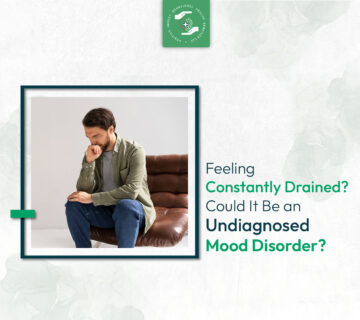Dive into the intricate connection between the meals we eat and the moods we feel. Discover the invisible thread linking eating disorders and emotional well-being in this in-depth exploration.
Understanding Eating Disorders and Their Psychological Impact
Eating disorders, including anorexia nervosa, bulimia nervosa, and binge-eating disorder, are complex conditions that arise from a confluence of biological, psychological, and social factors. At their core, these disorders reflect intense preoccupations with food, weight, and body image, leading to dangerous eating behaviors and significant disturbances in eating-related behavior.
The psychological ramifications of eating disorders extend far beyond dietary habits. They often manifest in a diminished sense of self-worth, pervasive feelings of inadequacy, and an overwhelming sense of loss of control, contributing to the development of mood disorders such as depression and anxiety.
It’s not just the physical health risks that make eating disorders so formidable; the psychological toll they take can be just as debilitating. The isolation, secrecy, and shame that often accompany these illnesses can magnify feelings of hopelessness and despair.
How Eating Disorders Affect Mood and Emotional Well-being
The bidirectional link between eating disorders and mood disturbances means that not only can mood disorders predispose individuals to develop eating disorders, but eating disorders can significantly worsen or trigger mood disorders. This vicious cycle creates a feedback loop that can be challenging to break without professional help.
Studies have shown that individuals with eating disorders often experience elevated levels of anxiety, depression, and irritability. These mood disturbances may stem from the nutritional deficiencies common in eating disorders, which can affect neurotransmitter levels and brain function.
The Role of Mental Health Monitoring in Managing Eating Disorders
Mental health monitoring plays a pivotal role in the comprehensive treatment of eating disorders. Regular assessment of an individual’s psychological well-being can help identify shifts in mood that may signal the need for adjustments in treatment.
Implementing structured mental health assessments throughout treatment provides critical insights into the effectiveness of therapeutic interventions and offers opportunities to address emerging challenges in real-time.
The focus on mental health monitoring underscores the importance of a holistic approach to treatment, recognizing that recovery from an eating disorder entails healing both mind and body.
Strategies for Improving Mood and Mental Health in Eating Disorder Recovery
Incorporating therapeutic practices such as cognitive-behavioral therapy (CBT) can be instrumental in addressing the underlying thought patterns and beliefs contributing to both the eating disorder and its associated mood disturbances.
Engaging in regular physical activity, within the boundaries of safety and health recommended by treatment professionals, can also provide mood-boosting benefits. Exercise releases endorphins, known as the body’s natural mood elevators, which can alleviate symptoms of depression and anxiety.
Implementing Regular Mental Health Monitoring Practices
Adopting regular mental health check-ins, whether through therapy sessions, self-assessment tools, or both, enables individuals and healthcare providers to remain vigilant against the potential exacerbation of mood-related symptoms.
Support Systems and Resources for Individuals Struggling With Eating Disorders
Building a support system of family, friends, and professionals is crucial for individuals battling eating disorders. Feeling understood and supported can significantly lessen the feelings of isolation often experienced.
Leveraging online forums, support groups, and national organizations dedicated to eating disorder recovery can provide a wealth of resources, advice, and encouragement to those navigating the path to better mental and physical health.
The Path Forward in Eating Disorder Recovery
Understanding the profound connection between eating disorders and mood underscores the critical importance of mental health monitoring. Through cultivating awareness and seeking support, individuals can navigate the complex journey towards recovery, embracing a future where food becomes a source of nourishment for both body and soul.






No comment